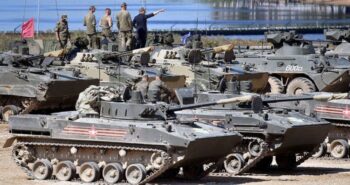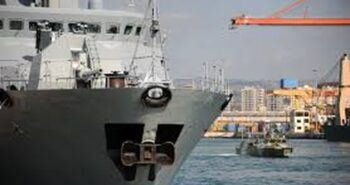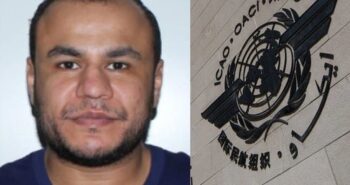The United Nations-backed, internationally recognized Government of National Accord (GNA) struggled in 2016 to assert itself in the capital Tripoli, as two authorities—one also based in Tripoli and another in eastern Libya—continued to compete for legitimacy and control over resources and infrastructure.
Forces aligned with all governments and dozens of militias continued to clash, exacerbating a humanitarian crisis with close to half-a-million internally displaced people. The civilian population struggled to gain access to basic services such as health care, fuel, and electricity.
Militias and armed forces affiliated with the two governments engaged in arbitrary detentions, torture, unlawful killings, indiscriminate attacks, abductions, and forcible disappearances. Criminal gangs and militias abducted politicians, journalists, and civilians—including children—for political and monetary gain. The domestic criminal justice system remained dysfunctional, offering no prospects for accountability, while the International Criminal Court (ICC), despite having jurisdiction over Libya provided by the UN Security Council, failed to open any new investigation into ongoing crimes.
The United States, United Kingdom, France, and the United Arab Emirates reportedly expanded their military activities in Libya to support forces in fighting extremists in Sirte and Benghazi.
The Islamic State (also known as ISIS) lost control over large parts of its self-proclaimed capital in Sirte, where it had been based since June 2015, and remained embroiled in fighting with Libyan and foreign forces. ISIS groups summarily executed people for alleged witchcraft and “treason” and imposed a severe and restrictive interpretation of Sharia law in areas under their control.
Tens of thousands of migrants, asylum seekers, and refugees from Africa and the Middle East transited through Libya on their way to Europe, with at least 4,518 drowning or going missing while crossing the Mediterranean in unsafe vessels. While in Libya, armed groups and guards at migrant detention facilities subjected many to forced labor, torture, sexual abuse, and extortion.
European Union efforts to stem migration from Libya risk condemning migrants and asylum seekers to violent abuse at the hands of government officials, militias, and criminal groups in Libya.
Political Transition and Constitution
The Presidential Council (PC), the highest body of the GNA, arrived in March in Tripoli to take control of ministries and government facilities that had previously been under the control of the self-proclaimed National Salvation Government, which stepped down in April to make way for the GNA .
In October, the former prime minister of the National Salvation Government announced a comeback together with the rump General National Congress, the former legislature, and took over the Tripoli premises of the State Council, the advisory body attached to the GNA.
The Interim Government, meanwhile, refused to recognize the cabinet proposed by the Presidency Council and continued to operate as a rival authority from al-Bayda and Tobruk in eastern Libya. Despite enjoying international recognition, the GNA struggled to win support domestically and gain authority and control over territory and institutions.
The so-called Libyan National Army (LNA), under the command of General Khalifa Hiftar and allied with the Interim Government, gained control of substantial territory in 2016, including in the oil crescent, where they took over major terminals. Libya’s legislative body, the House of Representatives, remained allied with the Interim Government. Throughout the year, deputies opposing the UN-backed GNA obstructed voting for a proposed cabinet.
In June, the president of the House of Representatives, Agilah Saleh, declared martial law, a de facto state of emergency, in the eastern region and appointed the LNA chief of staff, Abdulrazeq al-Nadhouri, as military governor for that region. Since then, al-Nadhouri has replaced several elected civilian heads of municipal councils with military governors.
In September, Abdurrahman Swehli, head of the High Council of State, declared that, in light of the inability of the House of Representatives to confirm a cabinet, the High Council of State would exercise all powers, including legislative ones.
Libya’s Constitution Drafting Assembly failed to finalize a preliminary draft constitution and remained embroiled in internal disagreements.
In the absence of a state authority exercising control over the national territory, dozens of rival militia groups and military forces, with varying agendas and allegiances, continued to flout international law with impunity. They indiscriminately shelled civilians, abducted and forcibly disappeared people, tortured, arbitrarily detained, and unlawfully killed people and destroyed civilian property.
In the first half of 2016, fighters loyal to ISIS controlled the central coastal town of Sirte and subjected residents to a rigid interpretation of Sharia law that included public floggings, amputation of limbs, and public lynchings, often leaving the victims’ corpses on display.
Warring factions continued to indiscriminately shell civilian areas, mostly in Benghazi and Derna in the east and in Sirte. From March until August, 141 civilian were killed in the violence, including 30 children, and 146 injured, including 28 children, according to the UN Support Mission In Libya (UNSMIL).
In the east, the LNA and allied forces made substantial advances against the Benghazi Revolutionaries Shura Council, an alliance of groups including Islamist militias such as Ansar al-Sharia. As of November 2016, fighting remained concentrated in the Ganfouda neighborhood of Benghazi, where several hundred civilians, including Libyans and foreign nationals, remained trapped by a standoff between LNA and militants since 2014. Civilians, including children, struggled with limited access to medical care, electricity, and food.
In February, two Serbian civilians held by ISIS died in US air strikes on targets in the western coastal town of Sabratha, which also killed dozens of fighters. The same month, unidentified aircraft attacked a hospital compound in the city of Derna, killing at least two civilians and causing extensive damage.
In May, armed groups allied with the GNA, backed by US airstrikes, launched a military offensive against ISIS fighters in Sirte. Hostilities continued at time of writing.
In Derna, the LNA continued to fight against the Derna Revolutionaries Shura Council, an alliance of militias that participated in the ousting of ISIS from the city in 2015.
In July, 14 unidentified bodies were found close to a dumpster in Benghazi with gunshot wounds, and in October, 10 unidentified bodies with gunshot wounds and torture marks were found in a nearby neighborhood of Benghazi. Both incidents took place in areas under LNA control. To date, authorities have not publicly announced any conclusion to their investigations. In October, shelling by unidentified forces killed one woman and injured six others in a camp for internally displaced people from Tawergha, in Tripoli.
Arbitrary Detention, Torture, and Deaths in Custody
Prison authorities and militias continued to hold thousands of detainees, including some women and children, in long-term arbitrary detention without charges or due process. While conditions varied, most prisons lacked a functioning medical facility and hygienic sanitary installations. Guards and militia members mistreated and tortured detainees with impunity.
In June, unidentified armed groups killed 12 detainees upon their conditional release from al-Baraka prison in Tripoli. All 12 were members of the former Gaddafi government and had been accused of taking part in the violence against anti-government protesters in 2011. According to the families, the bodies were found in various locations around Tripoli. At time of writing, no investigation had been conducted into these crimes.
Ongoing insecurity led to the collapse of the criminal justice system in Libya. Courts in the east remained mostly shut, while elsewhere they operated at a reduced level. The Supreme Court failed to issue judgments on all cases that were heard before it due to political divisions. In Sirte and environs, ISIS groups implemented their own interpretation of Sharia law in areas under their control including punishing people for smoking, wearing “immodest” dress, and adultery.
The ICC has the mandate to investigate war crimes and crimes against humanity in Libya pursuant to UN Security Council Resolution 1970 passed on February 27, 2011. The ICC prosecutor has failed to open any new investigations into the grave and ongoing crimes in Libya, citing resource limitations.
Libyan authorities failed to surrender Saif al-Islam Gaddafi, son of former leader Muammar Gaddafi, to the ICC where he is wanted for committing crimes against humanity during the 2011 uprising. Gaddafi was held by a militia in Zintan since his arrest in 2011, and was last seen by UN monitors in Zintan in June 2014.
In her November 9 update to the Security Council, ICC Prosecutor Fatou Bensouda announced her office would expand the Libya investigations in 2017 to include recent and ongoing serious crimes.
The penal code contains more than 30 articles that provide for the death penalty. Since Gaddafi’s overthrow in 2011, civil and military courts around the country have imposed death sentences, including against eight former officials in the Gaddafi government in a flawed trial in 2015. No death sentences are known to have been carried out since 2010.
The UN High Commission for Refugees (UNHCR) estimated at 435,000 Libya’s population of internally displaced people. UNHCR was unable to conduct vital activities such as child protection services at detention centers due to inadequate funding for its humanitarian programs.
In what amounts to a crime against humanity, militias and authorities in Misrata continued to prevent 40,000 residents of Tawergha, Tomina, and Karareem from returning to their homes in relation for alleged crimes during the 2011 revolution attributed to people from those cities against anti-Gaddafi activists and fighters.
In August, representatives of Misrata and Tawergha signed a reconciliation agreement that aims to ensure return home of the displaced from Tawergha as well as compensation for both sides and reconstruction of damaged structures. The deal also foresees accountability for serious crimes. It has yet to come into force.
Freedom of Speech and Expression
In June, an ISIS fighter allegedly shot dead freelance reporter Khaled Al Zantani in Benghazi. In Sirte, an ISIS fighter allegedly shot and killed photojournalist Abdelkader Fassouk in July, and in September, an ISIS fighter allegedly shot and killed Dutch photojournalist Jeroen Oerlemans.
The fate of Sofiane Chourabi and Nadhir Ktari, two Tunisian journalists who went missing in September 2014 while on assignment in Libya, remained unknown.
Armed groups kidnapped and disappeared other journalists. According to RSF, in January, a unit allied with the LNA in Benghazi arrested and tortured a local correspondent for a TV station, Libya HD, Badr Al Rabhi, for three days.
Women’s Rights, Sexual Orientation, and Gender Identity
The penal code permits a reduced sentence for a man who kills or injures his wife or another female relative because he suspects her of extramarital sexual relations. Libyan law inadequately prohibits domestic violence and its personal status laws continue to discriminate against women, particularly with respect to marriage, divorce, and inheritance.
Same-sex relations are prohibited and punished with up to five years in jail.
Abductions and Enforced Disappearances
Militias continued to abduct and disappear civilians, including politicians and journalists, with impunity. Criminal groups abducted residents, including children, demanding large ransoms from their families and often killing their victims if relatives failed to come up with the money.
Those still missing include Tripoli civil society activist Abdelmoez Banoon and Benghazi prosecutor Abdel-Nasser Al-Jeroushi, both abducted by unidentified groups in 2014. Saif al-Islam Gaddafi, wanted by the ICC for crimes against humanity and sentenced to death in absentia by a Tripoli court for crimes committed during the 2011 revolution, was last seen in June 2014, in Zintan. Gaddafi was held by the Abu Baker al-Siddiq Brigade in Zintan following his arrest in 2011.
Migrants, Refugees, and Asylum Seekers
Refugees, asylum seekers, and migrants, continued to flock to Europe via Libya. As of November, UNHCR recorded over 342,774 arrivals to Italy by sea from North Africa since January mostly from Libya. According to UNHCR, at least 4,518 died or went missing while crossing the Mediterranean from Libya to Europe. The International Organization for Migration estimated that 771,146 migrants and asylum seekers were in Libya as of November.
Members of the Libyan Coast Guards or Navy intercepted boats and returned the migrants and refugees back to land and into detention centers, often subjecting the migrants they intercepted to physical and verbal abuse. While the Department for Combating Illegal Migration (DCIM), which is part of the Ministry of Interior, managed the majority of migrant detention centers, militias and smugglers controlled other unofficial detention facilities.
Conditions at migrant detention facilities remained abysmal. Officials and militias held migrants and refugees in prolonged detention without judicial review and subjected them to poor conditions, including overcrowding and insufficient food. Guards and militia members subjected migrants and refugees to beatings, forced labor, and sexual violence.
The United States, European Union, and regional states all played significant roles in the armed conflicts occurring in Libya. The US, France, and United Kingdom reportedly participated in military activities in support of Libyan forces against militant groups, most notably ISIS in Sirte and Benghazi.
Efforts to reach a political settlement between warring factions, led by the UN envoy to Libya Martin Kobler, and backed by members of the international community most notably the US, UK, France, and Italy, failed to achieve the desired results as parties remained engaged in hostilities, competing for legitimacy.
On March 8, the UN Panel of Experts on Libya, established pursuant to UN Security Council resolution 1973 (2011), issued its final report which said that several countries, individuals, and companies were responsible for violations of the arms embargo against Libya. According to the report, the UAE, Egypt, Qatar, Turkey, Ukraine and Sudan have all violated the arms embargo against Libya since 2011, by transferring weapons, ammunitions, aircraft or armored vehicles to the conflict parties.
Also in March, a leaked document revealed that British special forces had been actively fighting extremist groups in Libya since January. In July, France announced that three of its soldiers were killed in Libya after a helicopter crashed during an intelligence-gathering operation. In August, the US expanded its air campaign in Libya, at the request of the GNA, to include targets in the ISIS stronghold of Sirte.
The Office of the High Commissioner for Human Rights (OHCHR) released a report in February documenting widespread violations and abuses committed in Libya since 2014 that included unlawful killings; indiscriminate attacks; torture and ill treatment; arbitrary detention; abductions and disapperances; and violations against women, journalists, human rights defenders, migrants, and children.
Despite a recommendation by the High Commissioner that the Human Rights Council consider establishing an independent expert mandate on Libya to report on the human rights situation and progress towards accountability, the council’s resolution only requested a further report from the high commissioner in March 2017. In a September update, the high commissioner’s office reported to the council that the situation has not improved and that impunity prevails, and reiterated the recommendation that the council create an independent expert mandate.
The UN Security Council extended for another 12 months in March an arms embargo on Libya. In June, the council unanimously authorized the inspection of vessels off Libyan high seas in an effort to crackdown on illicit weapons smuggling. The council also passed a resolution in July that authorized moving Libya’s category 2 chemical weapons out of the country and destroying them. In October, the council renewed its authorization for the interdiction of vessels used for smuggling migrants on the high seas off the coast of Libya.
The Rule of Law and Human Rights division at UNSMIL, which operates from Tunis and visits Libya only rarely due to security concerns, scaled down its public reporting on human rights violations. However, in March, it started producing a monthly bulletin on civilian casualties in Libya.
In June, the EU extended its anti-smuggling naval operation in the central Mediterranean, Operation Sophia, to include training for the Libyan Coast Guard and Navy. In July, NATO committed to supporting Operation Sophia by providing intelligence, surveillance, and reconnaissance, as well as capacity-building for the Libyan coastguard and navy.
____________




